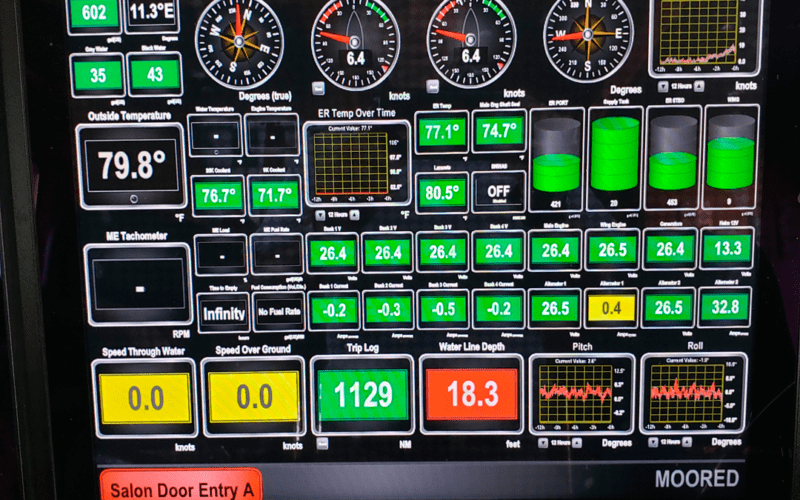Editor’s note: This piece originally appeared in the Ocean Cruising Club’s monthly bulletin (oceancruisingclub.org).

Alarms are a good thing. They warn of emerging problems and do not get tired or lazy.
That said, I think many boat owners would agree that we have so many alarms that when one goes off, it can be difficult to know what the warning is or where to go to respond. Someday, an enterprising entrepreneur will come up with an alarm annunciator that tells you in a human voice which alarm has tripped. In the meantime, it behooves every skipper to make a “vessel alarm list” and to try to differentiate the alarms by sound (buzzer, beep, two-tone, etc.).
After creating such a list of your own, highlight the “urgent” alarms. For example, on our Valiant 42 Alchemy, these are: engine oil pressure and water temperature, high water, bilge pump activation, propane sniffer, smoke detectors, exhaust hose temperature, and carbon monoxide (CO). Remember, there are also the skipper-set alarms on AIS, radar, instruments and the DSC (digital selective calling) alarm on your VHF. Finally, there are the alarms that emerge from our “devices.” Post this list where it is easily accessible for review, such as on the wall of the head.
One danger with alarms is that they can support a false complacency that inhibits regular inspections. For example, an eyes-in-the-bilge inspection should occur on every watch during passages. Also, a reminder: many alarms need attention. Some beep when batteries are low, while many do not. A beginning-of-season renewal of all alarm batteries is wise. Other alarms have expiry dates (e.g., CO alarms are often five years), while smoke detectors can malfunction because of accumulation of dust or cobwebs. One’s confidence in a propane sniffer increases when it activates when tested with gas from an (unlit) lighter.
Dick Stevenson and his wife Ginger voyage aboard their Valiant 42, Alchemy.

